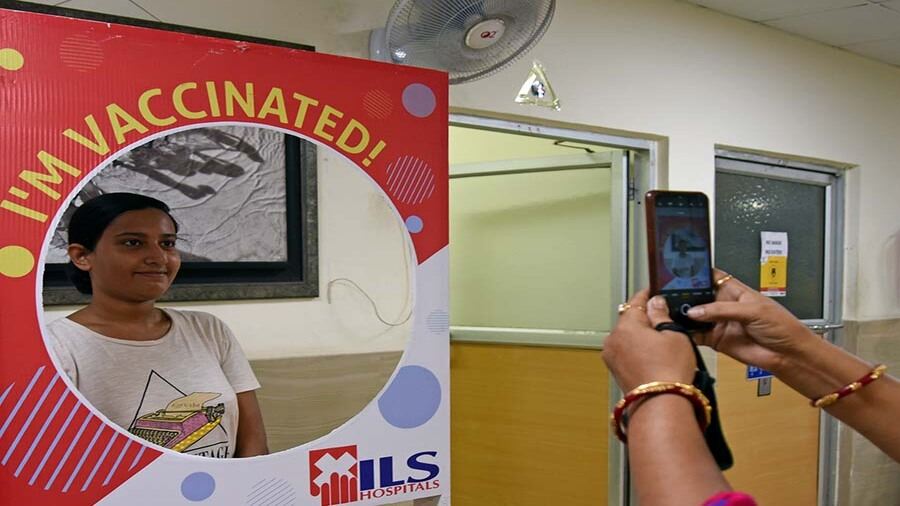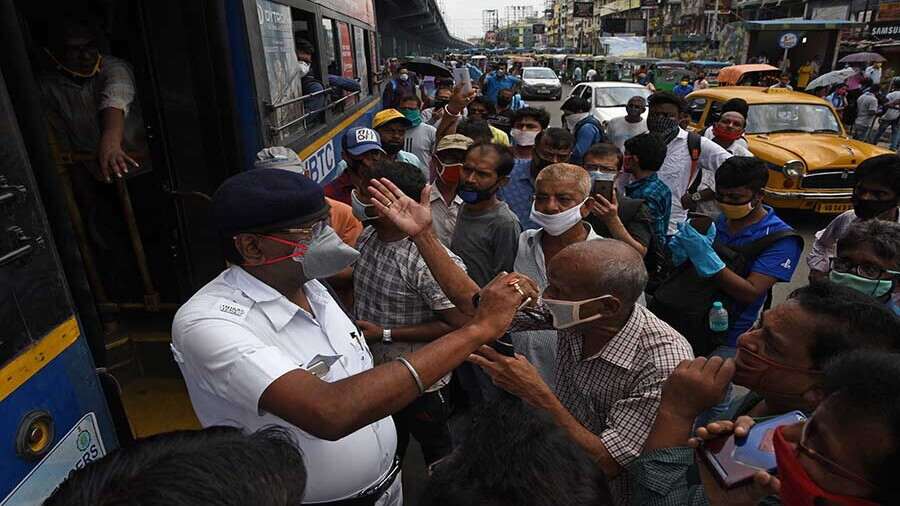A third wave of Covid-19 seems inevitable, but how dangerous will it be? When will the third wave hit India? How to combat a third Covid wave?
People want answers to these questions.
According to a recent study, a third wave of Covid-19 is unlikely to be a severe one when compared with the second wave of the pandemic which washed across India since mid-February this year. The study was published in early July in a renowned journal, the Indian Journal of Medical Research.
The study was carried out by researchers from the Indian Council of Medical Research (ICMR) and the Imperial College London. It is accessible here.
As the study points out, the possible reasons for a third Covid wave in India include a new and more transmissible variant of SARS-CoV-2 (the virus that causes Covid-19) which cannot be countered by the already developed immunity among the common masses, and the release of the lockdown — an effective measure that has limited the transmission of the virus.
“In both cases, any third wave seems unlikely to be as severe as the second wave,” the study says.
Citing recent medical research, Dr Sanchita Roy, a practising paediatrician in Kolkata and associate professor of anatomy at the Diamond Harbour Govt Medical College, comments that the onset of a third wave in India may be from late August to October 2021.
According to her, the time to reach the third wave’s peak may be “four more months” after onset and it may even go to “mid-2022”.
“The outcome of a third wave is dependent on a number of factors, such as waning of immunity acquired by us following natural infection or vaccination and the emergence of a SARS-CoV-2 mutant strain that is able to escape the immunity we have acquired so far,” she says.

Once the peak of a Covid wave is reached, a large number of people in a community develop a temporary immunity, which disappears in three-four months. In an unvaccinated population, there are possibilities that the 'waves' may reappear in three to four months
Dr Diptendra Sarkar, a Covid-19 strategist, public health analyst, and professor of surgery at the SSKM Hospital in Kolkata, explains that a wave is an “unnatural clustering” of cases above the base level in terms of case number.
To maintain coexistence with humans, viruses such as SARS-CoV-2 tend to increase “infectivity” and decrease “fatality”, and this often leads to mutations or sudden genetic changes in them. As Sarkar explains, when a new viral variant such as the Delta strain of SARS-CoV-2 infects many people in a community, those who are “symptomatic” to the disease develop a sustained immunity against the virus.
However, those who do not have symptoms develop only a temporary immunity that lasts for three to four months.
So, once the peak of a Covid wave is reached, a large number of people in a community develop a temporary immunity, which disappears in three-four months. According to Sarkar, in an “unvaccinated” population, there are possibilities that the “waves” may reappear in three to four months.

It is a fact that we are staring at the third wave
Dr Suvadip Chakrabarti, consultant surgical oncologist
To tackle any possible third Covid wave, scaling up the Covid-19 vaccination coverage and keeping up adequate preparedness — such as avoiding public gatherings, use of masks by common people, improvement in the availability of oxygen, medicines and hospital beds — may be beneficial, according to the study carried out by researchers from the ICMR and the Imperial College London.
“It is a fact that we are staring at the third wave,” says Dr Suvadip Chakrabarti, a consultant surgical oncologist at the Apollo Multi-speciality Hospital, Kolkata. “We need to take all precautionary measures.”

Post-vaccination photograph time at a private facility in Swabhumi, Kolkata. Amit Datta/My Kolkata
According to him, vaccine is a must, but it is also important to stick to Covid protocols — such as using masks and maintaining social distancing — irrespective of the vaccine status of individuals.
“While the general population aims to achieve a Covid-free world, such thoughts are impractical,” comments Sarkar. “The world should be happy if an almost-zero-mortality and common-cold-type conversion of the pandemic takes place. For this, global vaccination is the only way out,” he says.
Dr Sanjeet Bagcchi is a physician who writes for several international medical journals.
